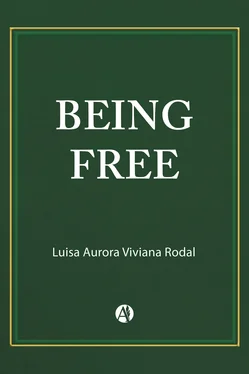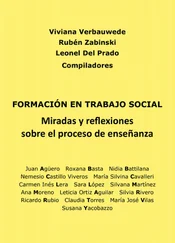“Only in an emancipated society whose member´s autonomy and responsibility had been realize, would communication have developed into non-authoritarian and universally practiced dialogue from which both our model of reciprocally constituted ego identity and our idea of true consensus are always implicitly derived. To this extent the truth of statements is based on anticipating the realization of good life”20.
“In contrast to the neo-Aristotelian position, discursive ethics is emphatically opposed to going back to the age of philosophical thought prior to Kant. Kant´s achievement was precisely to dissociate the problem of justification from the application and implementation of moral insights… In Kant, autonomy was conceived as freedom under self-given laws, which involves an element of coercive subordination of subjective nature. In discourse ethics the idea of autonomy is intersubjective”21.
Habermas´ proposal reinterprets moral autonomy of Kantian freedom (the formality of the categoric imperative) through the intersubjectivity of a responsible freedom grounded in consensus based on the argumentative valid critique.
I think I have described the philosophy and sociology of Habermas. His interest is the justification of human beings who responsibly argue in a critical way for a valid consensus.
Nevertheless, the idea of justification has another different angles through which it may be considered.
If one must link freedom to responsibility, it is needed to explicate which and how are these different modes of justification. The fields to which this last one may refer to are: the scientific one, the legal one, the religious one, and the philosophical. The following chapters will try to approach a picture of them. As a conclusion, I shall depict the iconoclastic sense (or utopianly moral) that freedom requests for not being either an authoritarian will, nor random desire.
Freedom is a Human Right and the centre of democracy. Thinking about being free is a necessary activity for human society and, I believe that the debate about its matter must be always be open to critique.
Freedom is a cultural good and a right referred to obligations, inasmuch as it involves responsibility and it is justifiable. Being free is not simply a changing will but it unites itself intimately to the commitment with humanity (for an utopia not ideological nor dogmatic). Being free exempting oneself of a humanist ethics is to hinder intrinsically freedom itself. Thus considered, freedom does not allow defending the flag of a crude anarchism, of an absolute and unconsidered will. Being free may be truly explained if one considers the material limits of life that might cancel it, and the moral obligations that the existence of an authentic humanity.
One must agree on that we live in a world sustained by beliefs, reasonable, justified, accorded or not. The belief about the humanized medium that surrounds us allows the cultural, economic, scientific, religious, or even the merely ludic, and other activities. These beliefs state the existence or reality of facts with which as human beings we relate to each other constituting a scope toward the effectiveness of any action. In few words, the belief in reality allows that human activity may be realized.
Now, it is generally required (if not necessary) that the belief be validated or justified. I think that the most absolute evidence for this are the facts. Hume emphatically pointed out the importance of proceeding from the empirical knowledge for the formation of ideas. The philosopher states: “When any impression becomes present to us, it not only transports the mind to such ideas are related to it, but likewise communicates it them a share of its force and vivacity”22. The human universe is primordially constituted by the conceptual comprehension of its medium. And, what I want to show, is that, in my position, this conceptuality must especially result from the evidence of impressions produced from the facts ( as is sustained by the natural o common comprehension of the knowledge phenomenon).
Yet, be it through the clarity of the sensible impressions, be it through rational intuition, the justification of these knowledges and their relative assertions or propositions determines the existence of truth. Therefore, justification appears always implied in the human activities, even in the art for only art, without cause (since it involves the justification as pure art).
From another point of view, due to human rationality, the activity also implies a causality or explication. These reach their expression through the rational justification of existence. Even, the nonsensical art is explained by the motive of its lack of signification.
Through what has been said, I wish to show that justification is an activity of relevant importance in human actions.
Justification legitimates an act, activity, or fact. Justification may be referred to various objects (emotions, petitions, laws). As for example, truth knowledge, according to Platonism, must be legitimate or justified through the Ideas and Goodness and according to empiricism by sense experience.
Because of this, the theory of justification intends to describe the techniques to prove or sustain declarations and enunciations (that is to say, expressions for beliefs with pretentions to truth). Nevertheless, Perelmann notes that humans hold opinions of all kinds with a variable intensiveness and their beliefs are not always evident23. Regarding this, Ernest Sosa points out that justification depends on epistemic virtues which give the right to maintain certain beliefs; beliefs are not formed randomly but they depend of the experiences as also of the intellectual responsibility or deontological obligation and the interest in accepting the true and rejecting the falsity24. Plantinga adds that the intellectual faculties must work correctly, including the evaluation of one owns and others intentions25.The present theories about justification are: Functionalism, Coherentism, Internalism, Externalism, and the justifications of current use include the scientific method (empiricism, pragmatism, theory of probability )26.
The word “justification” derives from the Latin iustificare, action and effect of making just (iustus, just; facere, to make). That is to say, it is the process and outcome of justifying, the demonstration and proofs to explicate the action of an innocent one27. Through this one may see the importance of the idea of law. In English one may note the concept of vindication impressed the in the vocable. The justification is the showing of something as correct or reasonable28. To justify, at last, is to present an act, thing or fact as just.
I wish to comment the sense of the word ius. Nowadays it points the Objective Right (rules and norms that conform a juridical order). According to Juvencio Celso, roman jurisconsult (I-IIB Ch.) ius is referred either to justice or the essential values to a society or a State29.
Ius comes from the Indoeuropean “to unite” or “to link”30 and shares its origin with the term iungere that precisely “to unite”31. In the antique Rome, ius corresponds with , fatum; this last one was destiny, divine decision revealed to human beings through signs. In that epoch, the priests interpreted these signs to communicate fortune or favourable facts (fas) and unlucky or unfavourable ones (nefas). In the case of nefas, prohibitions were declared in order to avoid the corresponding disgrace. So, the ancestral traditions of Rome, religious and moral, were verbal and required of the interpretation of the pontiffs, who guided the society using collections of formulae and in secret maintained a mystery wisdom, prescriptive and ritual (they were the guardians of custom or mos). In 451 b. Ch. An especial magistrature was created (Decemviri Legibus Scribundus Consulari Potestate) in order to reform the juridic system and the laws of Twelve Tables were published. From what has been said, ius may be also be understood as sacred right or ius sacrum (laws made by human beings related to the divine); in this sense, it is different from fas, which is referred to the laws made by the gods respect the human conduct (legitimated religiously or in divine form)32.
Читать дальше












